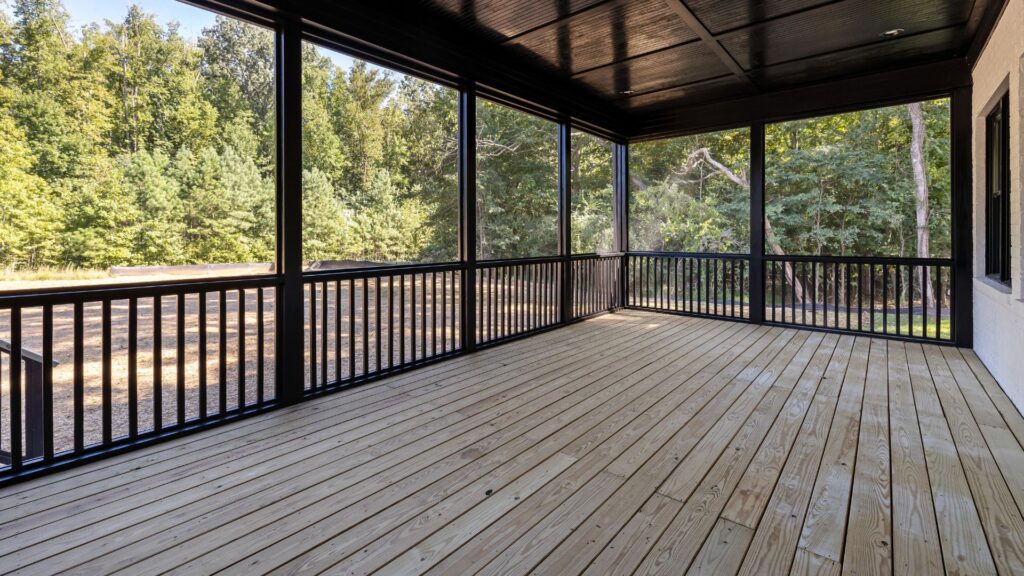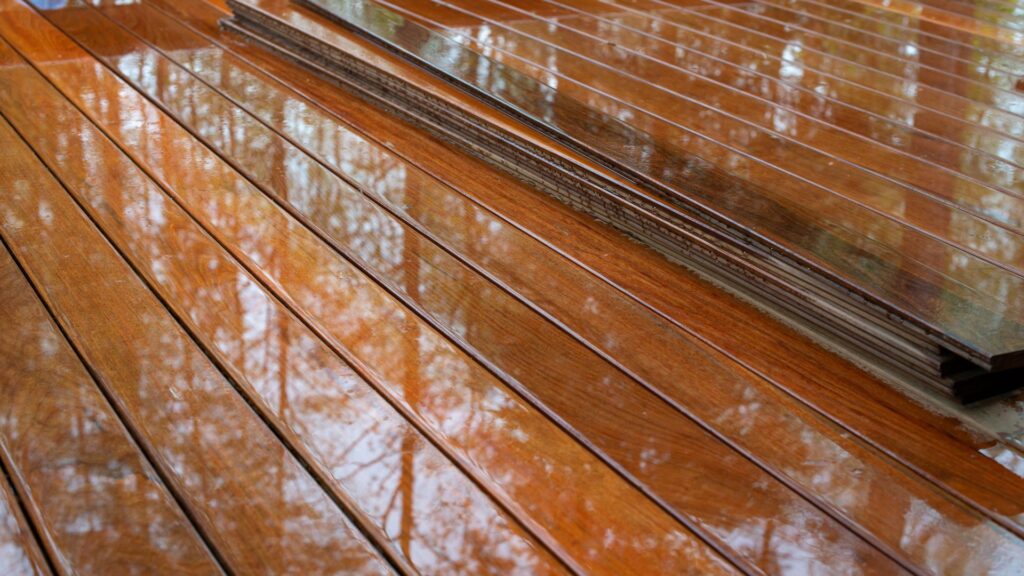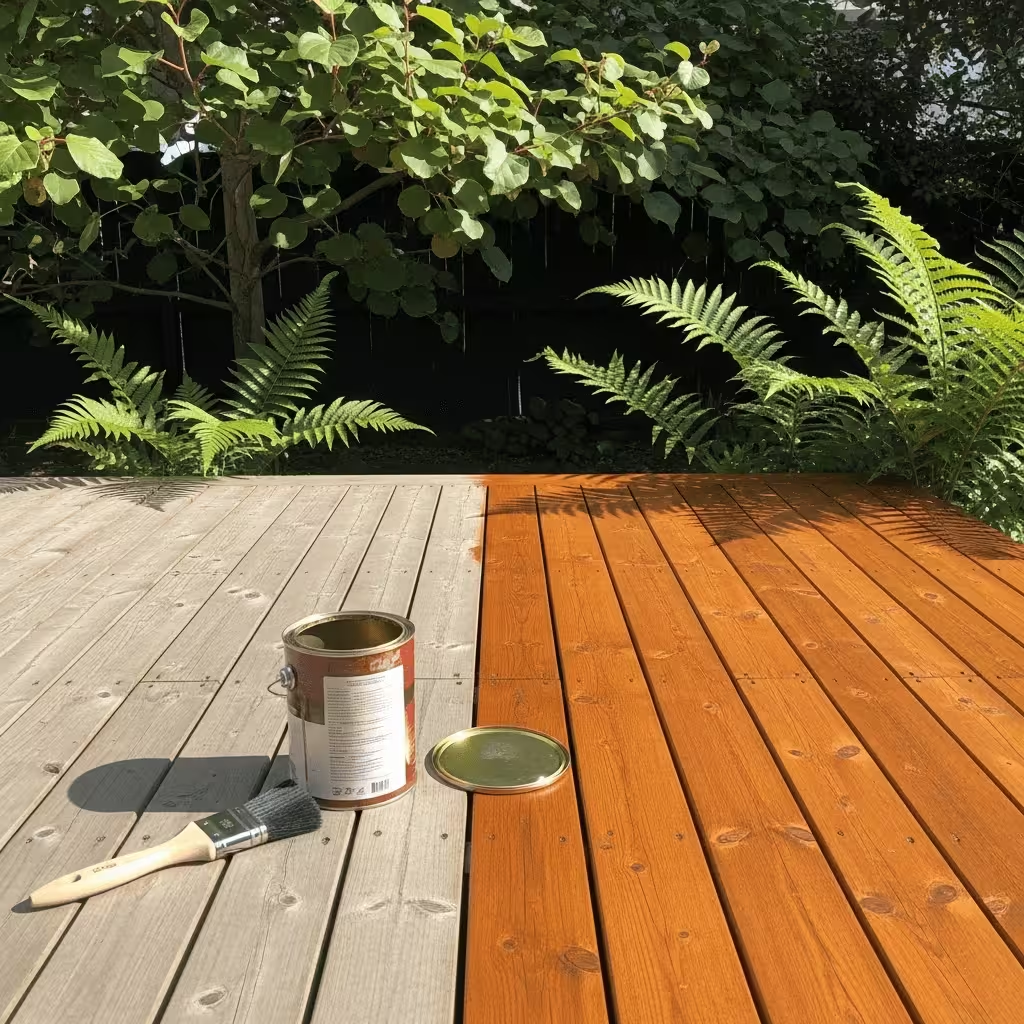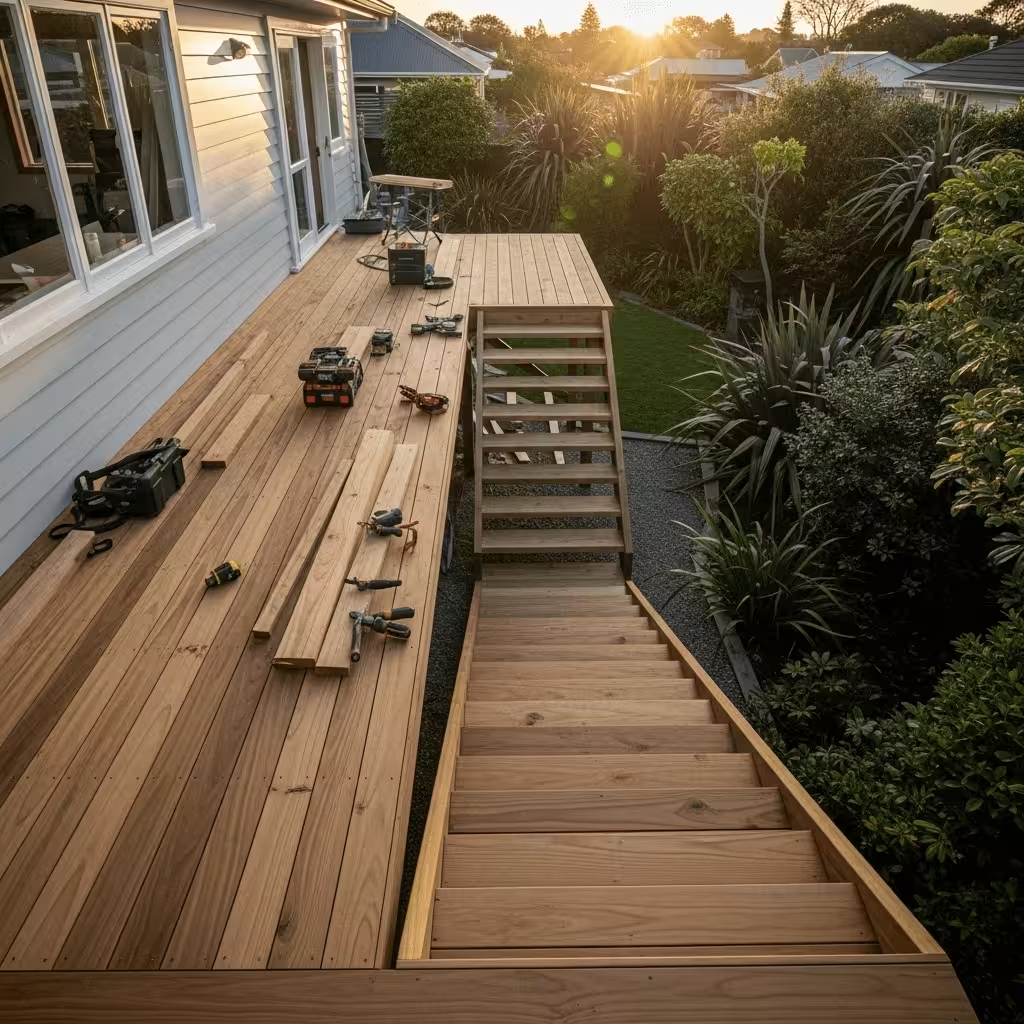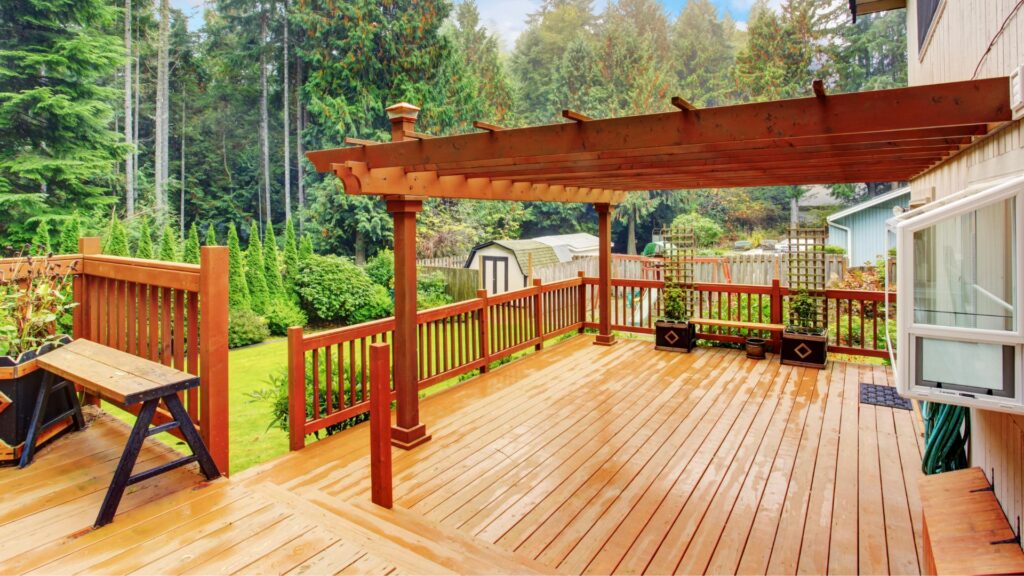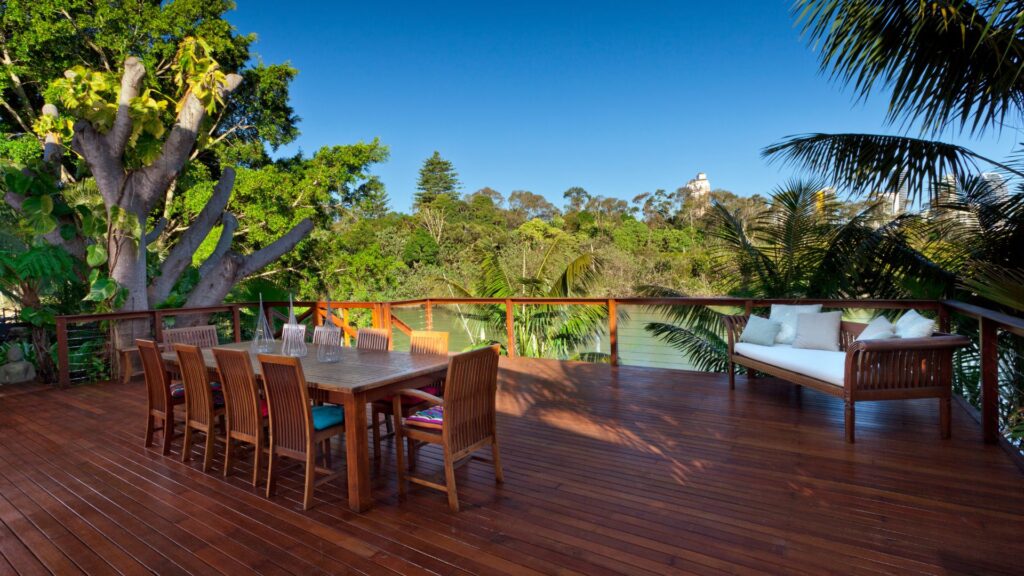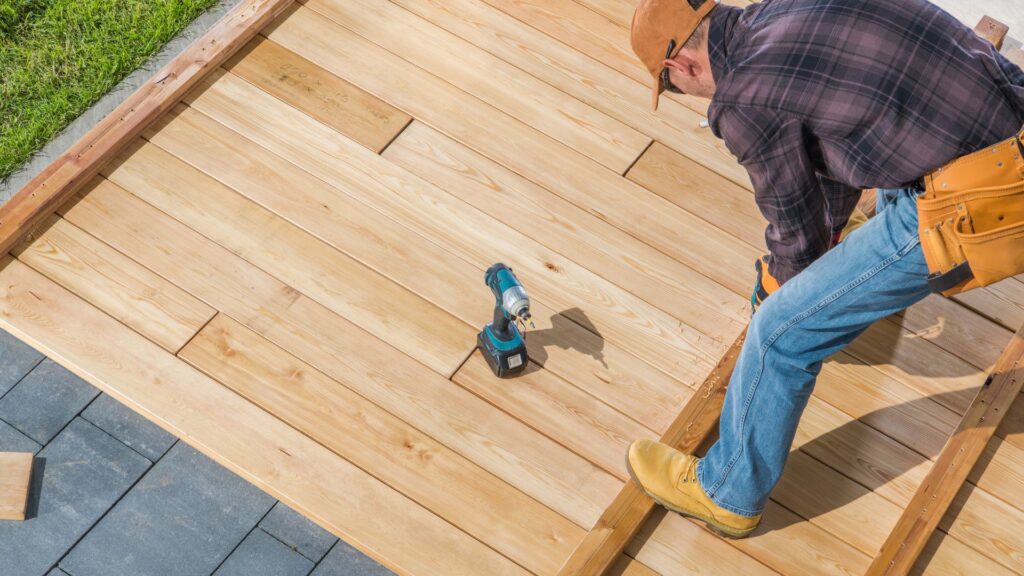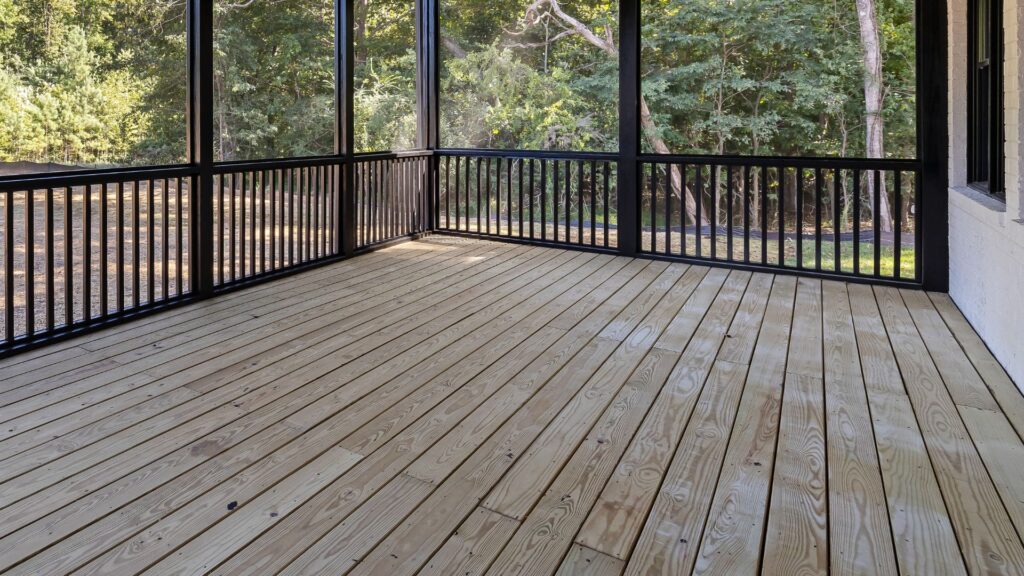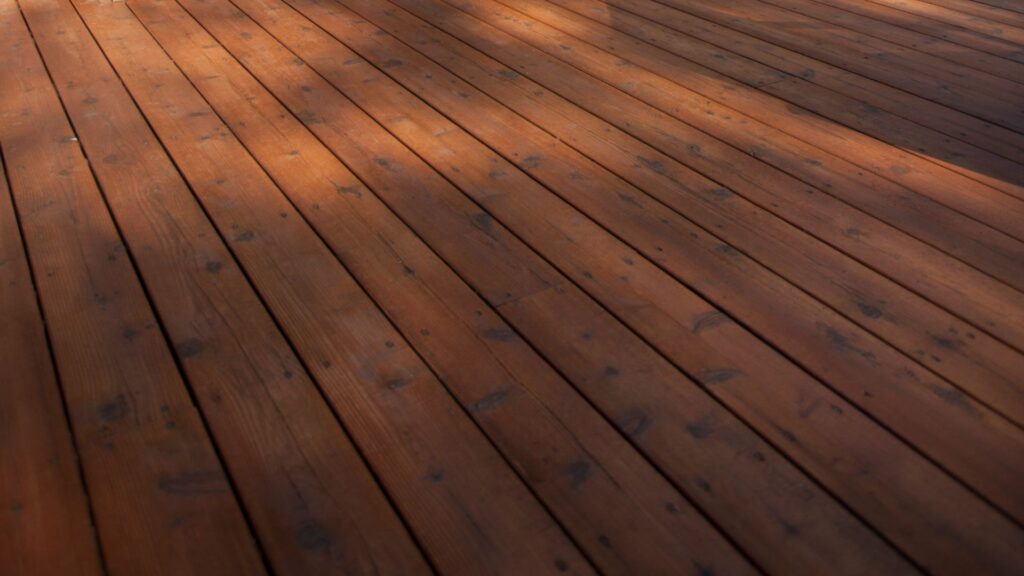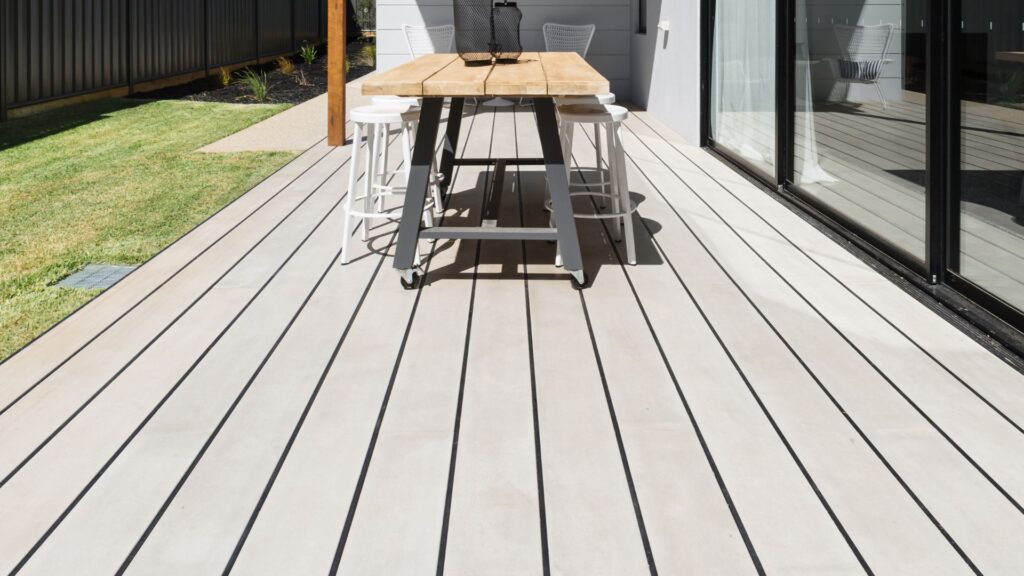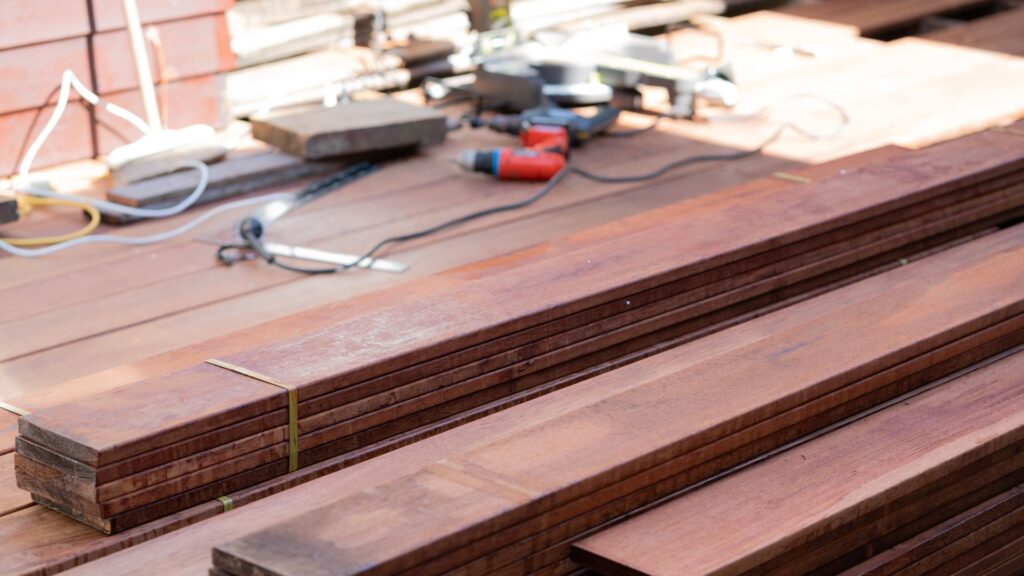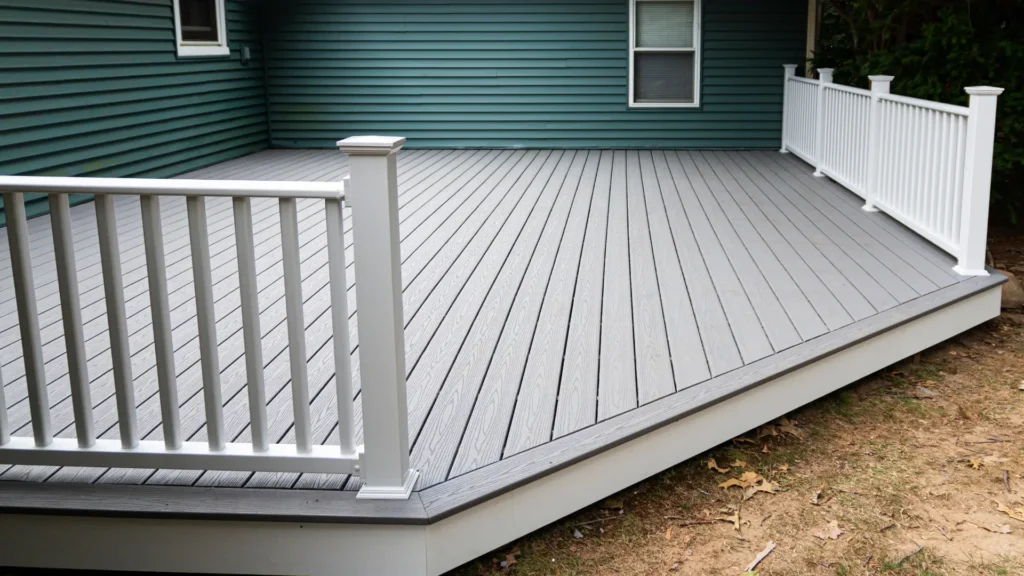Welcome to your guide on the best deck materials in Christchurch, where the right choice can make all the difference to how your outdoor space looks, feels, and lasts. With Christchurch’s mix of sunny days, coastal winds, and occasional heavy rain, selecting the right decking material isn’t just about style, it’s about durability, comfort, and long-term value. Whether you’re drawn to the natural warmth of timber, the low-maintenance appeal of composite, or the premium finish of hardwood, this guide will help you compare your options, weigh the pros and cons, and choose the deck that suits both your home and your lifestyle. By the end, you’ll know exactly what works best for your budget, the local climate, and how you want to enjoy your outdoor space year-round.
The best deck materials in Christchurch include timber, composite, and hardwood, each offering unique benefits for the local climate. Timber provides a natural look but needs regular maintenance, composite offers low upkeep and durability, and hardwood delivers a premium finish with long-lasting strength. Choosing the right material depends on your budget, style, and how much maintenance you’re willing to do.
Table of Contents
Why Deck Material Choice Matters In Christchurch
Choosing the right deck material for your Christchurch home is more than just a design decision. The region’s unique climate, local building requirements, and ongoing maintenance needs all influence how well your deck will perform and how long it will last. By understanding these factors, you can make a smart investment that adds value to your property and provides a comfortable, functional outdoor space for years to come.
Christchurch experiences a mix of sunny days, coastal breezes, and periods of heavy rain. Prolonged UV exposure can cause certain materials to fade, crack, or lose their finish over time. Coastal moisture, especially in areas closer to the sea, may lead to swelling, warping, or mould growth in timber decking if it is not properly treated. Sudden temperature shifts, which are common in the region, can also put stress on materials, leading to expansion, contraction, and potential structural issues. Selecting a material designed to withstand these environmental conditions is essential for both appearance and safety.
In addition to weather considerations, Christchurch homeowners must comply with council guidelines and the New Zealand Building Code when constructing or renovating a deck. These regulations cover aspects such as structural integrity, height restrictions, and safety barriers. Using approved materials and following proper installation practices helps ensure your deck meets all legal requirements while reducing the risk of costly modifications in the future.
Maintenance is another critical factor. Materials like untreated timber may require frequent staining or sealing to protect against the elements, while composite decking generally needs only periodic cleaning to maintain its look. Your choice should balance aesthetic appeal with the level of upkeep you are prepared to commit to. By weighing climate challenges, council rules, and maintenance demands, you can select a deck material in Christchurch that offers durability, compliance, and lasting visual appeal.
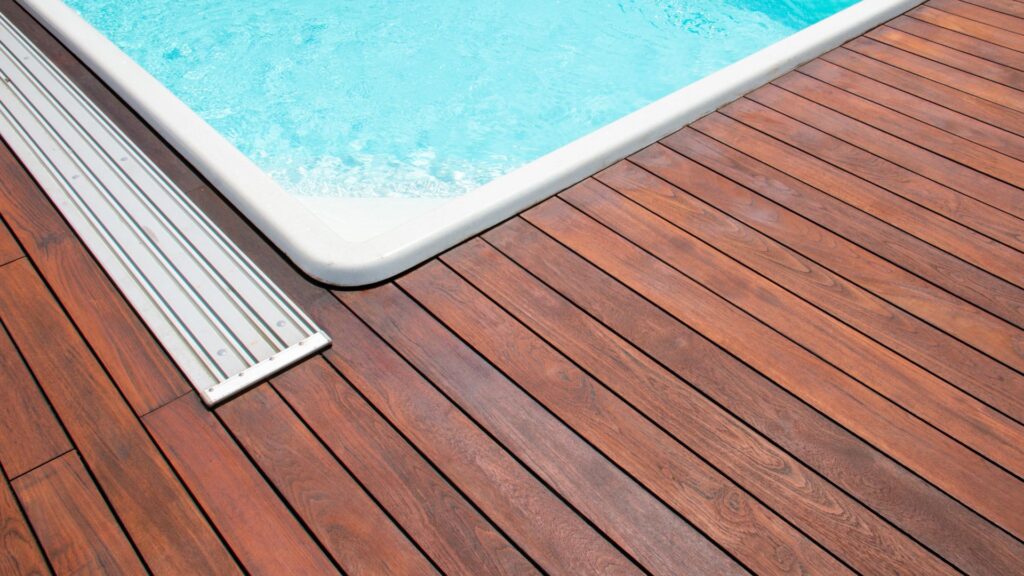
Popular Deck Materials In Christchurch
Choosing the right decking material in Christchurch is an important decision for both the look and performance of your outdoor space. The city’s climate, with its sunny days, occasional heavy rain, and coastal influences, means that certain materials perform better than others. Below is a detailed breakdown of the most common options used by local homeowners, including their advantages, drawbacks, and best uses.
Timber Decking
Timber remains one of the most popular choices for Christchurch decks because of its natural warmth and classic appearance. Common timber types include Pine, Kwila, Vitex, and Macrocarpa. Pine is widely available and cost-effective, making it a good choice for those on a budget. Kwila is valued for its deep, rich colour and high durability, while Vitex offers a lighter tone and a smooth finish. Macrocarpa is locally sourced and offers a rustic charm. Timber decking allows for customization through staining, painting, or oiling, enabling homeowners to match their deck to the rest of their property. The main drawback is maintenance, as timber requires regular staining or oiling to protect it from moisture, sun damage, and mould growth. Without proper care, boards can warp or fade over time. Timber decking is best suited to homeowners who appreciate a traditional style and are willing to commit to ongoing upkeep.
Composite Decking
Composite decking is made from a blend of wood fibres and recycled plastic, offering a modern alternative to traditional timber. This material has become increasingly popular in Christchurch because it requires little maintenance and performs well in varying weather conditions. It resists fading, warping, and insect damage, making it a long-lasting investment. Composite decking is available in a range of colours and textures designed to mimic the appearance of natural wood. While the upfront cost is higher than timber, the savings on maintenance can balance this over time. The main drawback is that a composite can feel less authentic compared to real wood, which may not appeal to everyone. This type of decking is ideal for busy households or those who want a durable option that does not require regular staining or sealing.
Hardwood Decking
Hardwood decking is the premium choice for homeowners looking for exceptional durability and an elegant appearance. Popular hardwoods used in Christchurch include Garapa, Ipe, and Australian hardwoods. These materials are naturally resistant to moisture, insects, and decay, making them suitable for long-term use even in challenging weather conditions. Hardwood decks often last for decades when properly maintained. They also provide a rich, luxurious look that can enhance the value of a property. However, hardwoods are more expensive than other materials and are heavier, which can make installation more challenging. They can also heat up under direct sunlight, which may be uncomfortable during hot summer days. Hardwood decking is best suited to high-end builds or homeowners who want a statement feature that will stand the test of time.
Eco-Friendly And Alternative Options
For those seeking sustainable choices, there are several eco-friendly decking materials available in Christchurch. Bamboo decking is a renewable option that grows quickly and has a sleek, modern look. Recycled plastic boards are durable, low-maintenance, and help reduce landfill waste. Modified woods, treated through processes like heat or acetylation, offer improved durability without the use of harsh chemicals. These options are ideal for environmentally conscious homeowners who want a deck that combines performance with sustainability. While the look and feel of eco-friendly materials can differ from traditional timber, they often require less maintenance and provide excellent longevity in Christchurch’s climate.
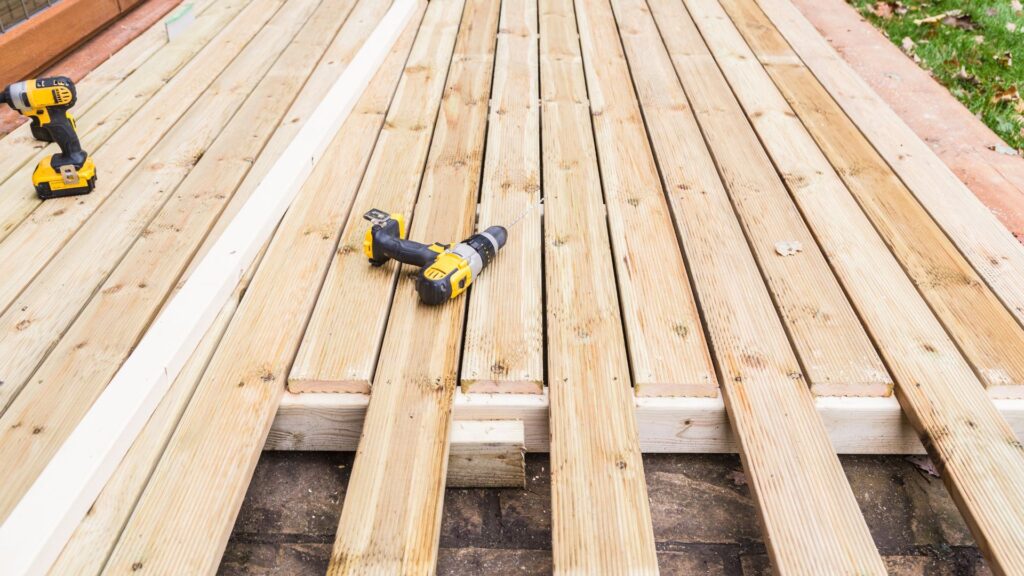
Cost Comparison Of Deck Materials In Christchurch
When planning a new deck in Christchurch, understanding the cost differences between materials is essential for making a smart decision. Prices are typically measured per square metre and include both labour and materials. On average, timber decking ranges from $200 to $350 per square metre. This price can vary depending on the type of timber, with treated pine being more affordable and hardwoods like Kwila or Vitex sitting at the higher end. Composite decking generally costs between $300 and $450 per square metre. While this is more expensive upfront, it offers lower maintenance costs over time. Premium hardwood decking can range from $350 to $500 per square metre due to its durability and high-end appearance.
Short-term costs are often the first factor homeowners consider, but focusing solely on initial expenses can lead to higher long-term spending. For example, while pine decking may be cheaper to install, it requires regular staining or oiling, which adds to ongoing maintenance costs. Composite decking, on the other hand, may cost more initially but eliminates the need for painting, sealing, or frequent repairs, which can save money over the years.
Paying more upfront is worth considering when you want to reduce long-term maintenance, improve durability, or boost your property’s value. In Christchurch’s climate, where sun, moisture, and coastal winds can take a toll on outdoor materials, investing in a premium option like composite or hardwood can prevent costly replacements in the future. The right choice balances your budget, maintenance preferences, and how long you plan to stay in your home.
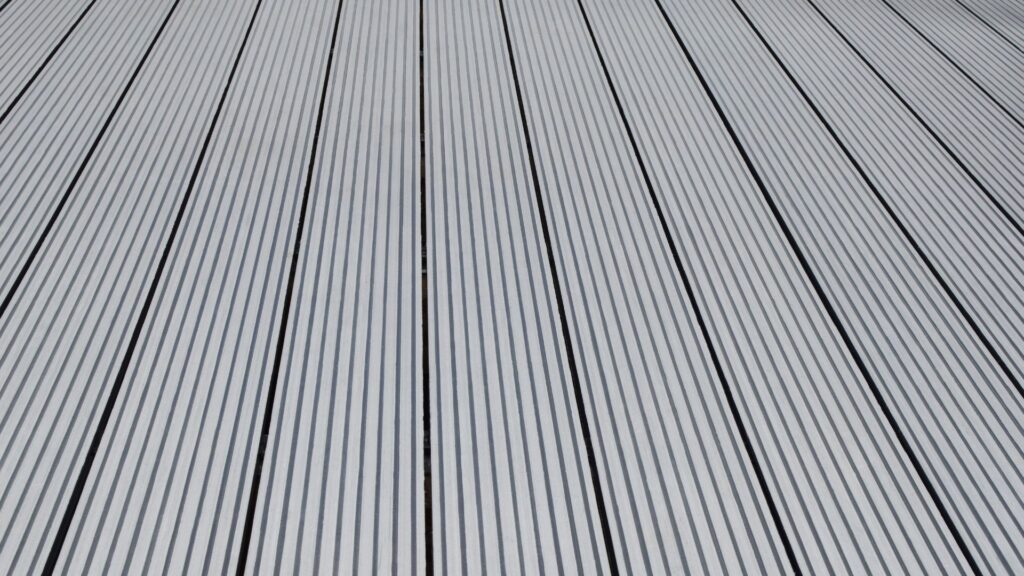
Maintenance Requirements
Proper deck maintenance is essential if you want your investment to last and look great over time. In Christchurch, the weather can shift quickly from bright sunshine to coastal winds and heavy rain, so a consistent care routine will keep your deck safe, attractive, and functional. The exact steps you need to take depend on the material you choose, but all decks benefit from regular cleaning, seasonal inspections, and a few proven longevity practices.
- Cleaning Routines For Each Material
Timber decking requires frequent cleaning to remove dirt, leaves, and debris that can trap moisture and cause rot. Use a soft-bristle broom to sweep the surface weekly and a mild deck cleaner every few months. Composite decking is easier to clean because it resists stains and mould, but it still benefits from an occasional scrub with warm soapy water. Hardwood decking should be cleaned with a gentle wood cleaner that preserves its natural oils and prevents fading. Always rinse thoroughly to remove residue that could damage the surface over time. - Seasonal Checks For Mould, Warping, And Fastener Issues
Inspect your deck at the start of each season. Look for signs of mould, especially in shaded or damp areas, and treat it immediately with an appropriate cleaner. Check for warped boards, which can happen after heavy rain or prolonged sun exposure. Tighten or replace any loose screws or nails to prevent movement and ensure safety. This is also the perfect time to check the stability of the railing and support posts, as Christchurch’s winds can loosen fixtures over time. - Longevity Tips For Christchurch’s Climate
To make your deck last longer in local conditions, apply protective finishes regularly. Timber decks benefit from oiling or staining every 12 to 18 months to shield against UV rays and moisture. For composite decks, follow the manufacturer’s care instructions to maintain warranty coverage. Keep plants and garden beds a short distance away to reduce the risk of water damage and mould growth. Finally, ensure proper drainage around the deck so rainwater does not pool beneath or on the surface. Small but consistent care steps will protect your deck from Christchurch’s changing weather and help it maintain its appearance and strength for years.
With the right material and regular care, your deck will stay beautiful, safe, and ready to enjoy in Christchurch’s climate for years.
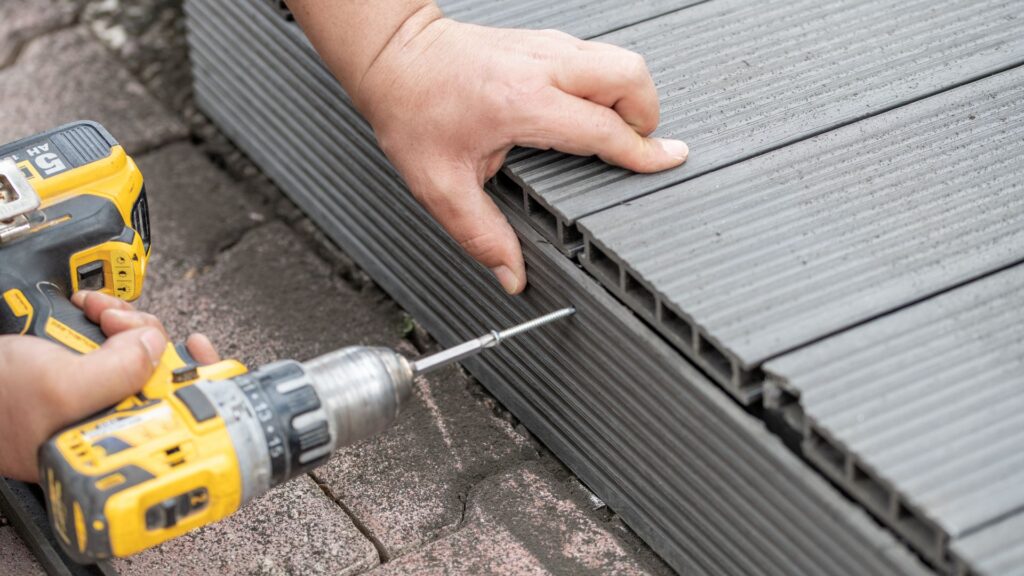
How To Choose The Best Deck Material For Your Home
Choosing the best deck material for your home in Christchurch is not just about picking something that looks good. It is about finding a balance between style, function, and long-term value. With the city’s unique weather conditions and the variety of materials available, taking time to assess your needs will ensure your deck remains attractive and practical for years.
Matching Deck Style To Home Design
Your deck should complement the architectural style of your home. A sleek composite deck often suits modern houses, while traditional timber works beautifully with classic or rustic designs. Color is also important. For example, light-toned decking can make a small backyard feel larger, while darker tones can add warmth to spacious outdoor areas. The goal is to create a seamless visual flow from the house to the deck so that it feels like an intentional extension of your living space.
Budget Vs Lifestyle Priorities
Before committing to a material, decide what matters most: lower upfront costs or reduced maintenance over time. Timber is generally more affordable to install but will require regular staining or oiling. Composite and hardwood decks cost more initially but often save money in the long run due to their durability and minimal upkeep needs. If you love spending time outdoors without constant maintenance tasks, a low-maintenance option might be worth the higher investment. On the other hand, if you enjoy hands-on home projects and want to keep costs down, timber could be the better fit.
Considering Sun Exposure, Privacy, And Intended Use
Christchurch’s climate means sun exposure can significantly affect your deck’s lifespan and comfort. Decks in full sun may fade or heat up quickly, making materials with UV resistance or lighter colors a smart choice. If privacy is important, consider how your deck’s placement and railing design can shield the area from neighboring views. Intended use also plays a role. A family entertaining space might benefit from a large, durable composite deck that handles heavy traffic, while a quiet reading corner could thrive with the natural feel of timber. Thinking through how you will use your deck day-to-day will help you select a material that meets both functional and aesthetic needs.
Choosing the right deck material for your Christchurch home comes down to style, budget, and how you plan to use your space. By weighing these factors carefully, you can create a deck that looks great, stands up to the local climate, and fits your lifestyle for years to come.
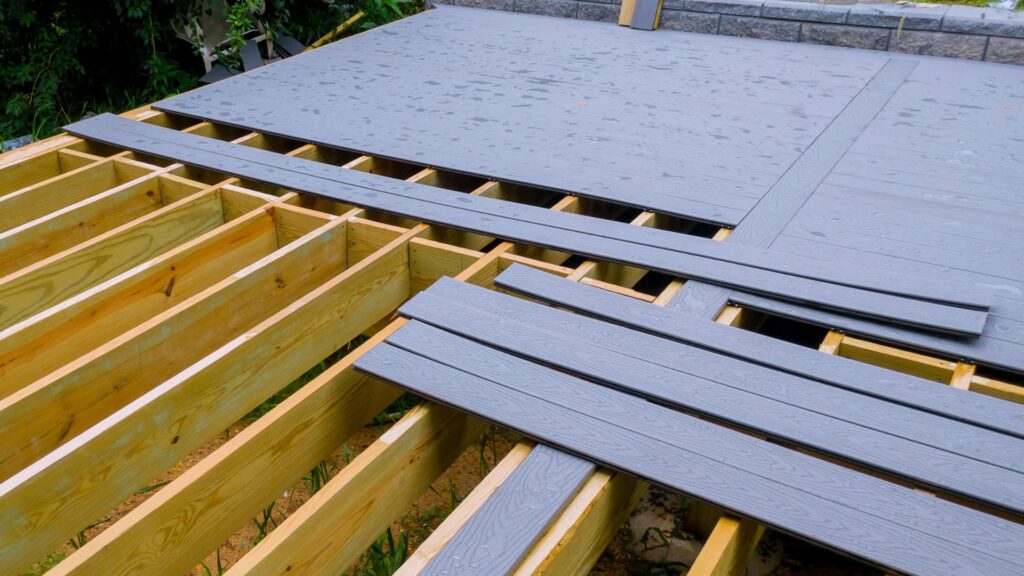
Where To Buy Deck Materials In Christchurch
Finding the right place to buy deck materials in Christchurch is just as important as choosing the right material. Local timber yards and home improvement stores both offer a range of options, but the experience, quality, and service can differ depending on where you shop.
Local timber yards are often the go-to choice for homeowners who value personalized service and expert knowledge. Staff at these businesses usually have years of experience and can offer tailored advice on which materials work best in Christchurch’s unique climate. They may also stock high-quality timber and specialty products that are not always available in larger chain stores. Another advantage is that local suppliers are often more flexible with custom orders and may have established relationships with local builders, which can speed up the process if you are hiring a contractor. The main downside is that prices can sometimes be higher than big box retailers, and stock availability might be limited for certain products.
Home improvement stores, on the other hand, provide the benefit of convenience and competitive pricing. Larger chains often have wider stock availability and offer delivery services, making them a practical choice for bigger projects. These stores may also run seasonal promotions, which can help reduce costs. However, the level of personalized advice may not match that of a specialized timber yard, and product quality can vary depending on the supplier the store works with.
No matter where you buy your decking materials, it is essential to check the product warranties. A good warranty can save you from costly repairs or replacements in the future. Look for clear warranty terms that specify coverage for issues like warping, fading, or rot. This is especially important in Christchurch, where coastal weather conditions can put extra strain on outdoor structures. Ensuring your decking material comes with a solid warranty will give you peace of mind and protect your investment for years to come.
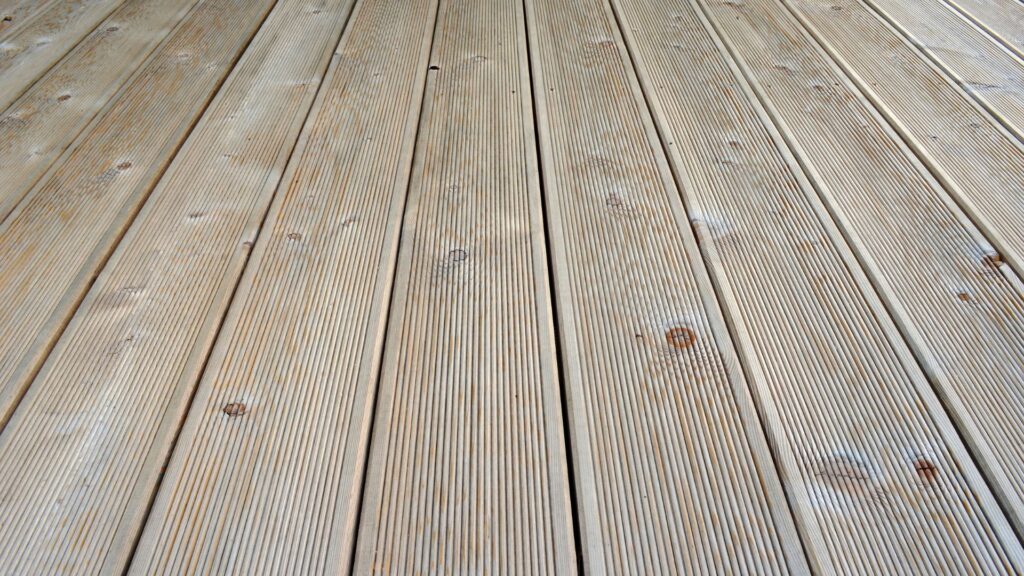
Expert Tips From Christchurch Builders
When it comes to building a deck that can handle Christchurch’s unique weather conditions, local builders know what works and what does not. Drawing from years of hands-on experience, they offer advice that can save homeowners time, money, and frustration. Here is a closer look at their top recommendations.
- Avoid Common Decking Mistakes
Many deck problems start during planning and installation. One common mistake is not allowing for adequate drainage. In Christchurch, rain and coastal moisture can quickly damage timber or cause mould if water cannot run off properly. Builders recommend ensuring the substructure has a slight slope and spacing boards correctly to promote airflow. Another error is choosing materials without considering the local climate. For example, untreated pine may look good initially, but it will struggle against UV exposure and heavy rain without regular treatment. - Best Installation Practices For Longevity
Proper installation is key to a deck that lasts. Experienced tradesmen suggest using corrosion-resistant fasteners, especially in areas close to the coast where salt air can speed up rusting. They also stress the importance of securing the deck frame to a solid foundation to prevent shifting over time. Using a moisture barrier between the frame and the ground can help extend the life of the timber by reducing rot risk. For composite decking, leaving expansion gaps between boards ensures the material can adjust to temperature changes without warping. - Choosing The Right Fasteners And Coatings
Fasteners and coatings can make a big difference in deck performance. Stainless steel screws are a top choice for Christchurch decks as they resist corrosion and hold up well in wet conditions. For timber decks, applying a high-quality oil or stain every 12 to 18 months will protect against UV damage and moisture. Builders also recommend clear sealants for hardwoods to preserve their natural color while adding weather protection. If using composite materials, check the manufacturer’s guidelines for compatible fasteners and recommended cleaning solutions to keep the surface looking new.
Choosing the right deck material and following expert advice can make all the difference in how your outdoor space looks and lasts. With the right planning, quality materials, and proper care, your Christchurch deck can stay beautiful and functional for years to come.
Ready to upgrade your outdoor space? Visit our website to explore the best deck materials in Christchurch and get expert advice tailored to your home and budget.
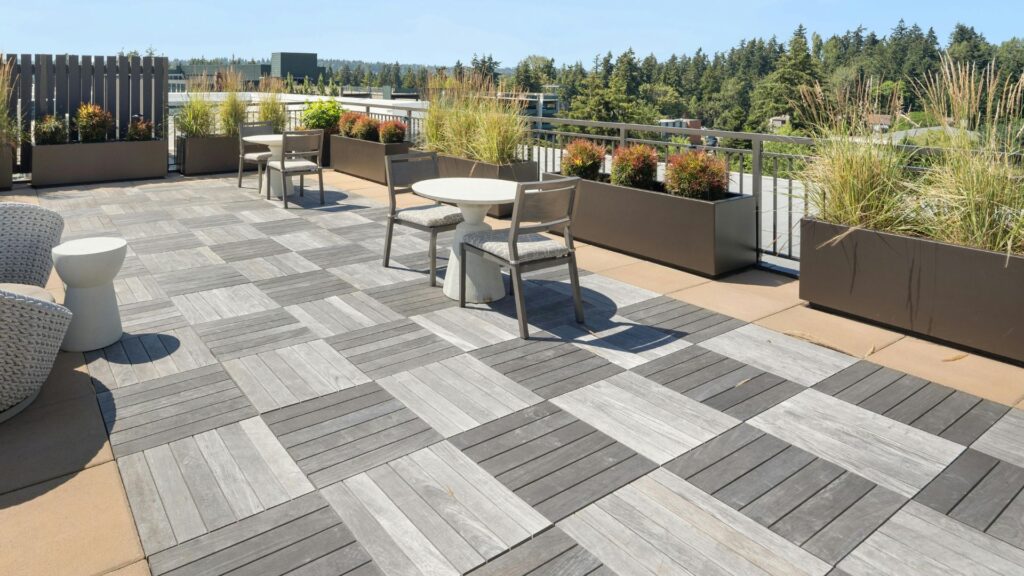
FAQs: About Best Deck Materials In Christchurch
What are the most popular deck materials in Christchurch?
The most popular options include timber, composite, and hardwood. Each offers unique benefits in terms of durability, maintenance, and appearance.
Which deck material lasts the longest in Christchurch?
Hardwood decking generally lasts the longest, with a lifespan of 25 years or more if well maintained, followed by composite decking.
Is composite decking worth the higher cost?
Yes, for many homeowners, composite decking’s low maintenance, fade resistance, and durability make it worth the initial investment.
How does Christchurch’s climate affect deck materials?
The city’s sun exposure, coastal winds, and rain can cause warping, fading, or mould in certain materials, making weather resistance essential.
What is the average cost of decking in Christchurch?
Costs vary: timber averages $200–$350 per square metre, composite $300–$450, and hardwood $350–$500, including installation.
How often should I maintain a timber deck?
Timber decks typically require cleaning every few months and oiling or staining every 12–18 months to prevent damage.
Are eco-friendly decking options available in Christchurch?
Yes, options like bamboo decking, recycled plastic boards, and modified woods are available for sustainability-conscious homeowners.
Can I install a deck myself in Christchurch?
While possible for experienced DIYers, professional installation ensures compliance with local building codes and extends deck life.
Where can I buy deck materials in Christchurch?
Materials are available from local timber yards, hardware stores, and specialist suppliers, often with options to view samples in person.
How do I choose the best deck material for my home?
Consider your budget, desired style, maintenance preferences, and how you plan to use the deck throughout the year.
Conclusion
Choosing the best deck materials in Christchurch comes down to understanding your options and matching them to your specific needs. Timber offers a warm, natural appearance but requires regular upkeep to withstand the city’s sun, wind, and rain. Composite decking delivers long-lasting durability with minimal maintenance, making it ideal for busy households, while hardwood provides a premium finish and exceptional strength for those willing to invest more upfront. Before making a purchase, consider your budget, desired style, maintenance commitment, and how you plan to use your outdoor space throughout the year. Every home and lifestyle is different, so what works for one homeowner may not be the best choice for another. For the most reliable results, consult local decking experts who understand Christchurch’s climate and building requirements. Their experience can help you choose a material that not only looks great but also performs well for many years to come.


